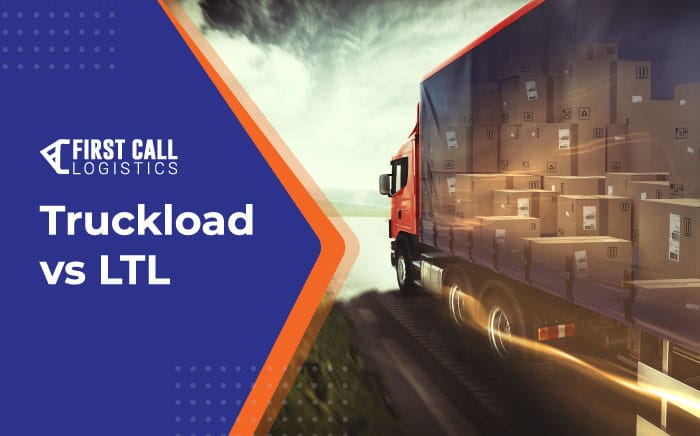Truckload vs LTL

Truckload vs. LTL, what’s the difference? Truckload and LTL (Less than Truckload) freight shipping are two different shipping services. They can be used together while many shippers tend to use one or the other exclusively. The first step to knowing if you’re doing everything you can to ensure efficient shipping of your inland cargo, you should understand the impact mode can make on risk, speed, and cost.
Truckload (Full Truckload Shipping or FTL) means that one shipping trailer contracts to one shipper, customer, or consignee. FTL shipments typically move from point A to B.
Less than truckload (LTL) is a mixed trailer that contains freight from 2 or more shippers, customers, or consignees. They make stops at several locations to pick up and drop off goods, and the shipments are loaded and unloaded at consolidation facilities.
Take a look at the differences between truckload and LTL shipping before you ship your goods out of the warehouse.
Full Truckload (FTL) vs Less than Truckload Shipping: Speed Comparisons
Full truckload is the quickest method for delivering freight because it only has one load to consider. The limits of capacity and driver’s hours of service are the only factors that limit how quickly the freight will arrive. FTL shipments can travel about 400-500 miles a day.
LTL shipments don’t take a straight line to their destination because they are ride-pooling in the same trailer. The diversions and stops along the way scale down the daily distance traveled to about 300 miles per day. On the other hand, LTL shipments can be scheduled more frequently and don’t have to wait for a full truck to depart, so smaller loads can be brought to market quicker.
Full Truckload (FTL) vs Less than Truckload Shipping: Cost Comparisons
Regardless of whether your shipment reaches the maximum legal weight or just fills the space, a truckload is paying for use of all 53 feet of the trailer. As long as your freight is not out-of-gauge, overweight, or requires special handling – you pay for a transfer to move from one point to another. Shippers who move standard payload that weighs over 10,000 lbs., typically opt for FTL.
When it comes to LTL, what you are shipping matters to a carrier because your freight will transport along with other shipments, so you split the cost with other customers. You are only responsible for the space, weight, and difficulty of your delivery. LTL carriers consider the NMFC (National Motor Freight Classification) of your goods, which is determined by the complexity of transport and density. If the NMFC class number of your products is lower, you will be charged lower fees.
Full Truckload (FTL) vs Less than Truckload Shipping: Risk Comparisons
During transportation, there is always a risk of loss, delay, or damage. However, many damages happen when the freight is being handled at distribution terminals and centers – not while in transit. When shipping via FTL, the shipment is only handled twice, so there’s a reduced risk of freight damage. As for LTL shipments, they stop at several terminals before the final destination and are typically unloaded and reloaded every time that a truck makes a stop. Products may be handled several times, so there’s an increased risk of damage, theft, or misloading the goods.
Whether you’re going to use Truckload or LTL depends on the type of your freight and the speed at which you want it to reach the market. To optimize your supply chain, you can utilize both forms of transportation according to the situation. First Call Logistics offers services for both FTL and LTL to help you execute shipments successfully, without having to deal with complicated and time-consuming logistics processes.
Interested in speaking with a logistics specialist about your full truckload or LTL shipping needs? Contact us today to get started.
